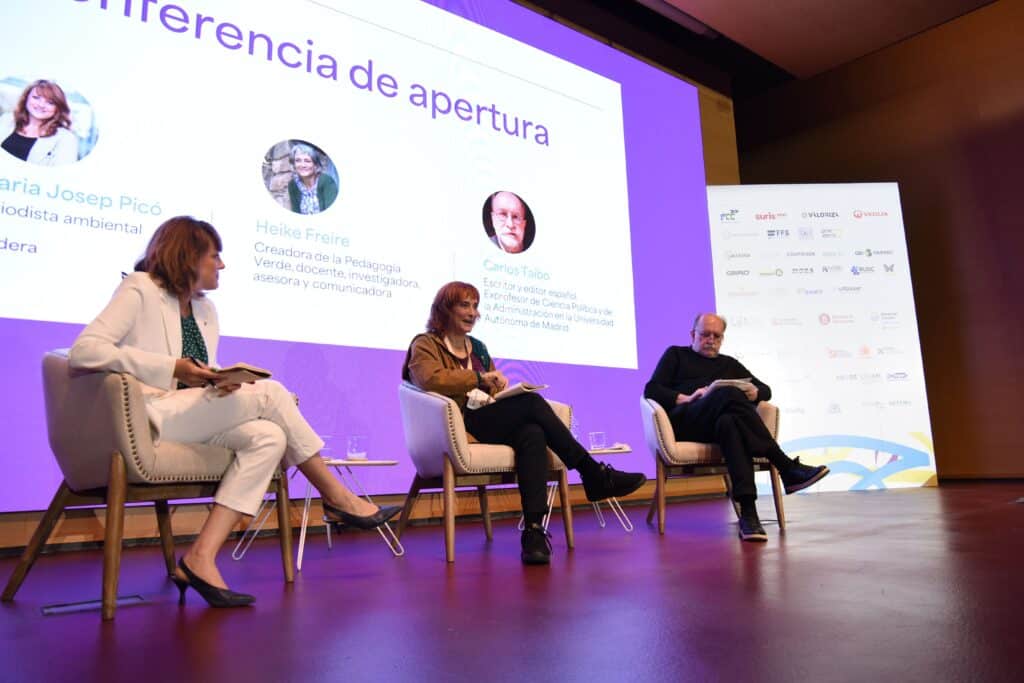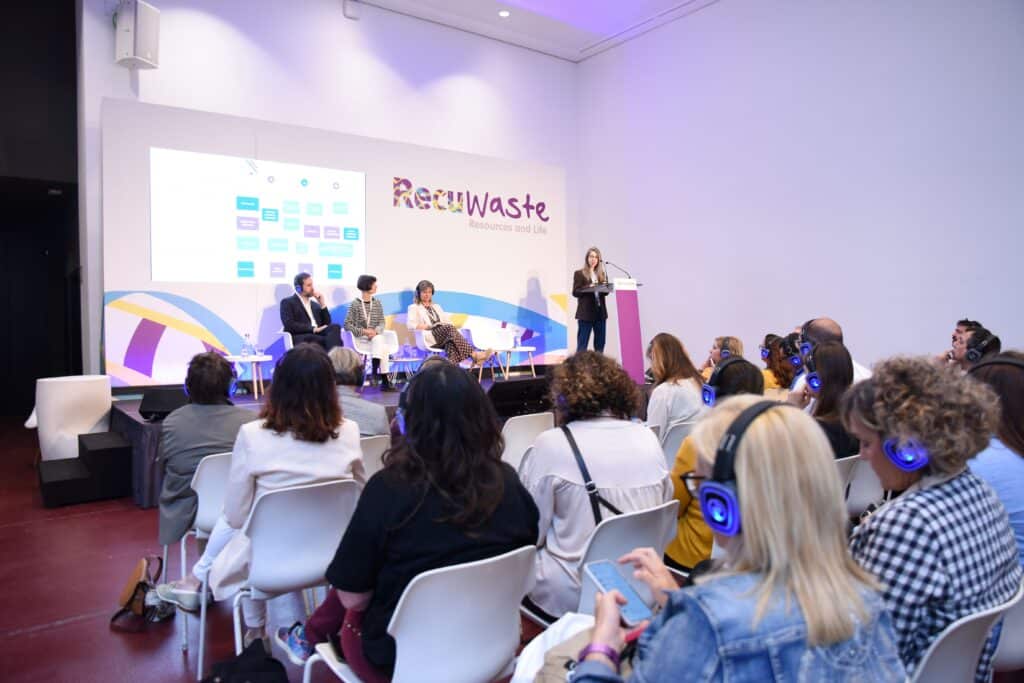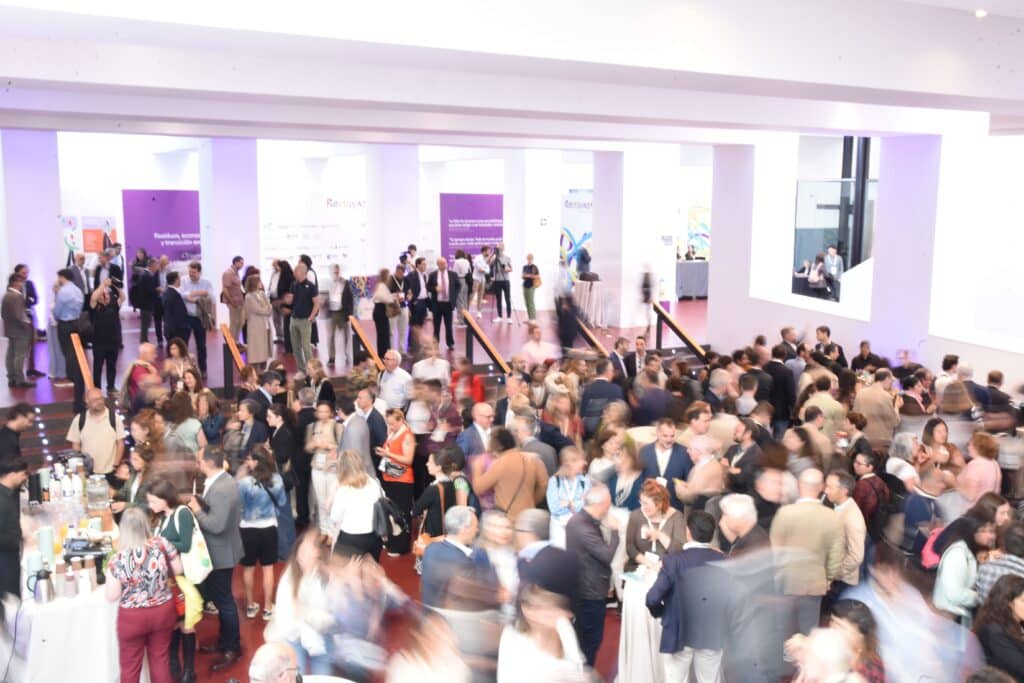700 professionals and 60 national and international speakers discussed the challenges of waste management, the new legal framework and the energy transition
The Waste Agency of Catalonia presents the Catalan infrastructure plan with the aim of closing landfills with only 6 years of useful life remaining
The congress closes with 10 key messages and the Alfonso Maíllo Award for innovation in circular economy for the Mollet del Vallès City Council project, “Urban marmalade from the orange trees of Santa Rosa”
On May 20th and 21st, The TecnoCampus in Mataró hosted the 8th edition of Recuwaste, the benchmark congress for professionals in the management and treatment of waste and resources, which brought together 700 participants and about 60 national and international speakers. Under the slogan “Waste, circular economy and energy transition: dilemma or virtuous circle?”, the congress addressed the major challenges and opportunities of a key sector in the fight against climate change and the transformation of the production model, which is moving to a necessary paradigm shift. Challenges that, throughout the Congress, have been shown to be urgent and necessary after recalling the European requirement to recycle 65% of waste by 2035.
David Bote, president of Maresme Circular and mayor of Mataró, welcomed the attendees, reminding them that “good resource management is essential for our competitiveness”, and Jordi Sargatal, secretary of ecological transition in the Catalunyan Government, encouraged the participants to “take inspiration from nature when managing and converting our waste into resources”.
Once again, the opening session was illuminated by an inspiring conversation, this year between educator and writer Heike Freire and thinker Carlos Taibo, moderated by environmental journalist Maria Josep Picó. The debate revolved around sustainability, degrowth, social justice and the transformative role of education.

From left to right: Maria Josep Picó, Heike Freire and Carlos Taibo / Marga Cruz
The program included presentations and round tables on industrial decarbonization, new systems of extended producer responsibility, the future of the deposit, return and refund system (DRS), as well as the management of waste, whether plastic, electronic or textile. Case studies and innovative projects in circular economy were also presented, as well as technical debates on the impact of the new legal framework for managers and producers or on the digital passport of products.
One of the essential topics discussed at Recuwaste was innovation in the whole process of waste management and treatment, giving them added value and converting them into resources thanks to the different recovery processes, thus favouring an energy and decarbonized transition of the productive sector. Not only in the waste treatment sector, but also in the entire industry (chemical, pharmaceutical, construction, automotive, food, etc.).

Recuwaste side events / Marga Cruz
One of the sessions that aroused most expectation was the presentation of the Territorial Sectorial Plan of Waste Infrastructures of Catalonia from the Catalan Waste Agency. This session highlighted the need to change the waste management model given that the useful life of landfills is currently 6 years, taking into account that 2 million tons of waste are deposited each year. Of the 25 landfills in Catalonia, there are plans to close half of them in the next 10 years.
At the municipal level, and with the collaboration of Barcelona City Council, the different implications of the new waste law and how to internalize the costs for the application of the new high efficiency collection formulas were presented. Examples were shared so that municipalities and county councils can implement the best techniques. Special emphasis was placed on the reconversion of clean points into resource centres for reuse.

Laia Arquera Hall / Marga Cruz
Activities such as the exhibition of innovative machinery for municipal cleaning and waste collection services, located outside the venue, were also well received. In addition, some of the participants visited the Maresme Integral centre for Waste Recovery and were able to experience a virtual reality immersion that recreated a sustainable city of the future.
This edition has also launched an initiative for the collection of used cell phones and electronic devices. In this regard, the importance of recovering materials, especially those with critical raw materials, such as cell phones, which contain practically all the elements of the periodic table, was underlined. One more argument for applying circularity and minimizing geopolitical conflicts, as well as the design of products with a long useful life in mind as opposed to programmed obsolescence.
Finally, the Alfonso Maíllo Award was also presented in recognition of the innovative work in the field of waste management developed by the City Council of Mollet del Vallès on the production of urban marmalade from Santa Rosa orange trees. To prevent these oranges from becoming waste, the City Council of Mollet del Vallès launched this initiative in 2021. A cooperative activity between the Gardening Brigade and volunteers who work together in their collection and selection to transform them into marmalade. This product is delivered to the food bank, which distributes it among its users.
Recuwaste is organized by Maresme Circular, the brand of the Maresme Waste Consortium, and has the support of the Catalan Waste Agency and the collaboration of the Barcelona City Council, the Catalan Government and other entities such as the Environmental Forum Foundation.

Networking at the Recuwaste congress / Marga Cruz




